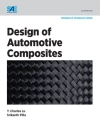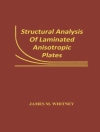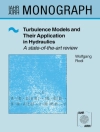The book addresses computational methods for solving the problem of vibration, response, loads and stability of a helicopter rotor blade modeled as a rotating beam with flap or out-of-plane bending. The focus is on explaining the implementation of the finite element method in the space and time domain for the free vibration, aeroelastic response and stability problems. The use of Floquet analysis for the aeroelastic stability analysis of rotor blades is also shown. The contents of the book will be useful to researchers in aerodynamics and applied mechanics, and will also serve well professionals working in the aerospace industry.
Jadual kandungan
Introduction.- Finite element analysis in space.- Finite element in time.- Stability analysis.- Helicopter rotor results.
Mengenai Pengarang
Vijay Panchore obtained his B. Tech degree in Industrial Engineering from the National Institute of Technology Jalandhar in 2009, M. Des. degree from the Indian Institute of Science Bangalore in 2011, and Ph D degree in Aerospace Engineering from the Indian Institute of Science Bangalore in 2017. He works in the area of finite element method, meshless methods and, helicopter dynamics. He has published two international journal papers, where finite element method and meshless methods were used to solve the rotating beam problems.
Prof. Ranjan Ganguli obtained his M.S. and Ph D in Aerospace Engineering from the University of Maryland, College Park, in 1991 and 1994, respectively, and his B.Tech degree in Aerospace Engineering from the Indian Institute of Technology, Kharagpur, in 1989. Following his Ph D, he worked at the Alfred Gessow Rotorcraft Center of the University of Maryland as Assistant Research Scientist until 1997 on projects on rotorcraft health monitoring and vibratory load validation for the Naval Surface Warfare Center and United Technology Research Center, respectively. He also worked at the GE Research Lab in Schenectady, New York, and at Pratt and Whitney, East Hartford, Connecticut, from 1997 to 2000. He joined the Aerospace Engineering department of the Indian Institute of Science, Bangalore, as Assistant Professor in July 2000. He was promoted to Associate Professor in 2005 and to Full Professor in 2009. He is currently the Satish Dhawan Chair Professor at the Indian Institute of Science, Bangalore. He has held visiting positions at TU Braunschweig, University of Ulm and Max Planck Institute of Metal Research, Stuttgart, in Germany; University Paul Sabatier and Institute of Mathematics, in Toulouse, France; Konkuk University in South Korea, the University of Michigan, Ann Arbor, in USA, and the Nanyang Technological University, Singapore. Prof. Ganguli’s research interests are in helicopter aeromechanics, aeroelasticity, structural dynamics, composite and smart structures, design optimization, finite element methods and health monitoring. He has published 178 articles in refereed journals and over 100 conference papers. He was awarded the American Society of Mechanical Engineers (ASME) best paper award in 2001, the Golden Jubilee award of the Aeronautical Society of India in 2002, the Alexander von Humboldt fellowship in 2007 and the Fulbright Senior Research fellowship in 2010. Prof. Ganguli is a Fellow of the ASME, a Fellow of the Royal Aeronautical Society, UK, a Fellow of the Indian National Academy of Engineering, a Fellow of the Aeronautical Society of India, an Associate Fellow of the American Institute of Aeronautics and Astronautics and a Senior Member of the Institute of Electrical and Electronic Engineers (IEEE). He has taught courses on flight and space mechanics, engineering optimization, helicopter dynamics, aircraft structures, structural mechanics, aeroelasticity and navigation. He has supervised the thesis of 15 Ph D and 35 Master’s degree students. He has written books on “Engineering Optimization” and “Gas Turbine Diagnostics”, both published by CRC Press, New York, and books titled “Structural Damage Detection using Genetic Fuzzy Systems” and “Smart Helicopter Rotors”, published by Springer.












